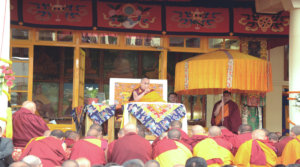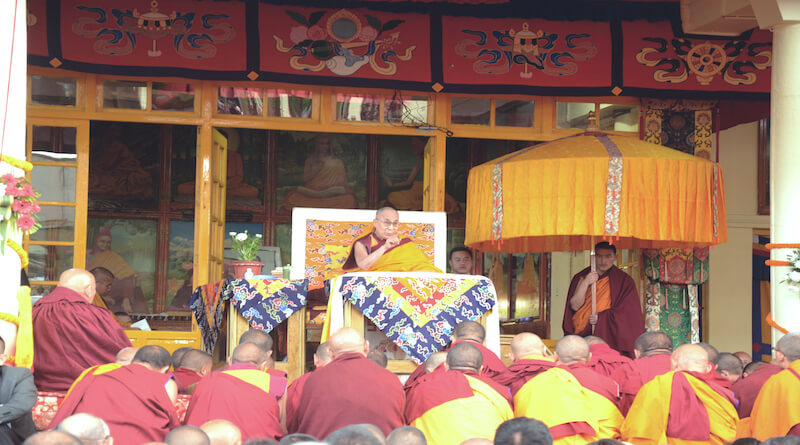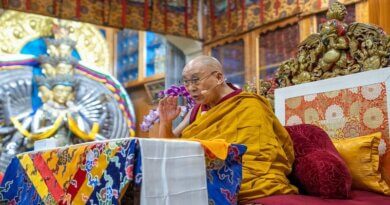Atheist China insists Beijing has final say on Dalai Lama’s succession

DHARAMSALA, 9 Jan: After the Central Tibetan Administration (CTA) President Penpa Tsering said that China will interfere with the Dalai Lama’s succession, Beijing has declared that they will have the final say on the issue of succession.
“The Chinese central government will support and guide the work of finding the successor of the 14th Dalai Lama and the successor, like his predecessors, will be finally approved by the central government,” the Chinese state-run media, Global Times said in a commentary citing Zhu Weiqun.
The former head of the Ethnic and Religious Affairs Committee of the National Committee of the Chinese People’s Political Consultative Conference added that “this has already shown that the highest authority on the issue of the Dalai’s succession does not belong to anyone, but is within the authority of the central government.”
Zhu added that “the reaffirmation refuted reports from India media quoting Penpa Tsering, the current head of the Tibetan government-in-exile, who claimed that China will interfere with the Dalai Lama’s succession.”
In an interview with PTI on Thursday, CTA President Penpa Tsering said that “We believe China will definitely interfere with the succession process of the Dalai Lama… They have been preparing for that for the last 15 years.”
With a sly dig at Beijing, President Tsering says in the interview that “Communist China professes not to believe in religion, yet it wants to interfere in what is a purely a religious function,” and added that the Dalai Lama in jest has said that if the “Chinese government is so interested in re-incarnation, it should study Tibetan Buddhism”.
While Beijing and the Chinese leadership have called the 14th Dalai Lama a “separatist,” “wolf in sheep’s clothing,” “a devil with a human face,” and a “devil with horns” among others, Zhu has accused the Dalai Lama of “betraying Tibetan Buddhism and the conventions of reincarnation of the living Buddha” in the commentary on the Chinese tabloid published by the ruling Communist Party’s official People’s Daily.
“He betrayed the motherland, trying in vain to turn the power belonging to the central government into his personal right, in order to achieve his separatist goals. He also betrayed Tibetan Buddhism by trying to destroy its historical conventions. He turned Tibetan Buddhism into a tool of separatism.”
Zhu made similar remarks then as the head of the ethnic and religious affairs committee of the Chinese People’s Political Consultative Conference in a commentary in 2015, asserting that the “decision-making power over the reincarnation of the Dalai Lama, and over the end or survival of this lineage, resides in the central government of China.”
In 2007, the Chinese government announced a set of regulations known as Documents No. 5. where reincarnations of Tibetan spiritual lamas have to be recognised and approved by the Party in an attempt to take control over all aspects of Tibetan culture and tradition.
The CTA and its Kashag (cabinet) have long maintained that Dalai Lama alone can decide the matter of his reincarnation and that “no government or any individual has the right to interfere in the matter of reincarnation of spiritual leader the Dalai Lama.”
The Dalai Lama has long maintained that the Tibetan people will decide if the institution of the Dalai Lama should continue or not. In the past, the Tibetan spiritual leader has said that if the Chinese government is so interested in his reincarnation, they should first find the reincarnation of Mao Zedong and Deng Xiaoping.
Meanwhile, in 2020 the US passed the Tibetan Policy and Support Act of 2020, a bill entailing sanctions against Chinese officials interfering with the selection of the 15th Dalai Lama and to deepen the US support for Tibet among others as it declared that the role of picking a successor to the Dalai Lama belongs to the Tibetan Buddhist system, the Dalai Lama and other Tibetan Buddhist leaders.





